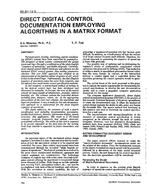A study of evaporative heat transfer coefficients of new ozone-friendly refrigerants is reported. A heat transfer coefficient correlation with a mean deviation of 7.2%, based on the experimental data obtained with R22, R12, R152a, and R114, was used for the prediction. This correlation was further validated by comparing it with more experimental data for R11 and R134a. For the prediction, the evaporator coil is assumed to be a straight tube with an inner diameter and length of 8mm and 7.86m (0.315 in. and 26.11 ft), respectively. Heat transfer coefficients of 12 halogenated refrigerants are estimated on the same cooling capacity of 3kW and 4kW (10,236 and 13,648 Btu/h), which is typical for residential heat pumps. The results indicate that the convective evaporation is the main heat transfer mechanism and nucleate boiling is fully suppressed at qualities greater than 20% for all fluids studied. While R134a and R152a show an increase in heat transfer coefficient compared to R12, R32 and R142b exhibit a slight decrease in heat transfer coefficient compared to R22 and R114, R141b and R123 are viable candidates to replace R11 from the viewpoint of heat transfer.
KEYWORDS: calculating, heat transfer coefficient, refrigerants, evaporation, R22, R12, R32, R142b, R141b, R152a, R114, R11, R134a, comparing, heat flow, evaporators, domestic, heat pumps
Citation: ASHRAE Transactions, vol.97, pt. 2, Indianapolis, IN 1991
Product Details
- Published:
- 1991
- Number of Pages:
- 6
- File Size:
- 1 file , 710 KB
- Product Code(s):
- D-17948


